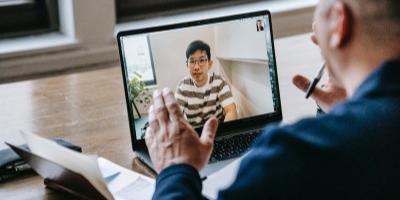Finding Value with Inclusive Mentoring
 By Guest Blogger: Edmund Asiedu, Advisory Council Co-Chair, National Disability Mentoring Coalition
By Guest Blogger: Edmund Asiedu, Advisory Council Co-Chair, National Disability Mentoring Coalition
As a Co-Chair of the Advisory Council of the National Disability Mentoring Coalition (NDMC), an initiative of Partners for Youth with Disabilities, I am personally committed to increasing the awareness, quality, and impact of mentoring for individuals with disabilities. NDMC raises awareness about the importance and impact of mentoring in the lives of people with disabilities, with the goal of increasing the number and quality of disability mentoring programs. The Coalition does this through building disability and mentoring community connections, operating the Dinah Cohen DREAM Fellowship Program, offering training and credentialing programs, and recognizing success through the Susan M. Daniels Disability Mentoring Hall of Fame.
In January, we celebrated National Mentoring Month. I want to share my belief in the importance of inclusive mentoring opportunities for individuals with disabilities, especially for young adults transitioning from school to work. Both formal and informal mentoring provides important connections to people who help you think about your work and career goals by asking questions so that you can make your own decisions.
As a young individual with a disability, my role models later became my mentors, and they were instrumental in my career development. They inspired and motivated me to go the extra mile to achieve every goal I set for myself.
For example, after graduating from senior high school in Ghana, my first mentor was the National Administrator of the Ghana Society of the Physically Disabled (GSPD). He exposed me to the challenges students with disabilities face on college campuses and in classrooms in Ghana. He then shared strategies he used to overcome architectural and socioeconomic barriers when he was in college.
These were the same challenges I faced at the Ghana Institute of Journalism, but I was better prepared for them because of my mentor's advice. I'm here today because he and other mentors believed in me and offered me the gift of their time. For this, I am most thankful.
Mentorship helps mentees, mentors and organizations. As a person with a disability, mentorship can offer you the opportunity to learn from role models who can share personal experiences and help with your career development. Mentors are able to share resources and advice with the knowledge and expertise they have acquired over the years and will likely learn something from their mentees, too. A mentoring program can also help organizations identify and retain high-performing employees and enhance an organization's commitment to building a diverse and inclusive work environment.
If you want to connect with a mentor or mentoring program, here's my advice:
- Understand the concept of mentoring and the value of having a mentor with a disability.
- Find the right people to mentor you by exploring your network, school alumni groups or organizations like the NDMC (or its parent organization, Partners for Youth with Disabilities).
- Prepare your elevator pitch — your story about yourself, your experiences and your work goals.
- Be humble and respectful when asking someone to be your mentor.
- Listen to their advice and practice what you learn.
- Ask questions if you do not understand something.
- Set measurable and time-oriented work or career goals and discuss them with your mentor.
- Meet regularly to sustain the mentoring relationship.
- Lead the relationship — you are in charge of the agenda and your plan.
If you are interested in locating a mentoring program, visit our NDMC network page. If you're a young adult interested in finding a mentor, visit the Mentoring Connector, hosted by Mentor.
Mentoring relationships help you meet new people and find new opportunities. This worked for me, and it can work for you, too! Mentoring will help you discover work and a career that you will love so you can live the life you want.
Blogger bio: Edmund E. Asiedu, Edmund is a passionate disability rights and career development professional with successful experience in advocating for disability inclusion and supporting students and graduates connect with job possibilities. He uses he/him/his pronouns. Before joining New York City Department of Transportation as a Policy Analyst for Accessibility, he held positions at Columbia University School of Public Health, Berkeley College, Cypress Hills Local Development Corporation, Lehman College, National Disability Rights Network, and Ghana Society of the Physically Disabled Youth Wing. Edmund holds a Bachelor of Social Work from the Lehman School and a Master of Public Administration from Baruch College School of Public and International Affairs. He served on the Disability Access and Accommodations Committee at Columbia University Medical Center and advised ENABLE student organization at the Columbia University School of Public Health. Edmund is an alumni of the American Association of People with Disabilities (AAPD) Summer Internship Program and currently serves as Advisory Council Co-Chair of the National Disability Mentoring Coalition.